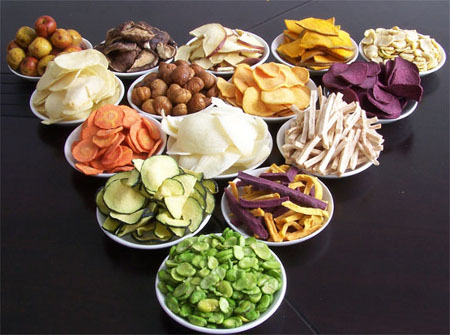 Let’s face it, food rocks. Whether it’s an Oreo Blizzard, a hot slice of pizza, or crispy fried chicken, food is one of the best things about life. Thankfully, taste buds are NOT affected by a spinal cord injury 😉 Since food is so awesome, after a spinal cord injury, it can be easy for people to use food to help them feel better.
Let’s face it, food rocks. Whether it’s an Oreo Blizzard, a hot slice of pizza, or crispy fried chicken, food is one of the best things about life. Thankfully, taste buds are NOT affected by a spinal cord injury 😉 Since food is so awesome, after a spinal cord injury, it can be easy for people to use food to help them feel better.
But when you eat too much food, you gain weight. Two out of three people with spinal cord injuries are overweight. And when you use a wheelchair, being overweight can cause a lot of problems. It can make your skin breakdown easier, it makes it harder to get dressed and transferring out of your wheelchair a lot more difficult.
Also, when you eat right, your body will work better and you’ll stay healthier because you’ll be able to prevent all the extra conditions that can happen to people when you have a spinal cord injury, like constipation, urinary tract infections and osteoporosis. It can be a dangerous world out there, but food can make it a lot easier.
Healthy food doesn’t have to be gross either. Grilled meats are super healthy, and popcorn with a light amount of butter is a great source of fiber (which helps you go to the bathroom easier). You need 15 g of fiber a day. Foods like apples, bran muffins and wheat bread have fiber. You also need to eat foods that make your skin healthy.
Fish is an excellent source of vitamin E, which is great for skin. Also berries, carrots, leafy greens like spinach and kale, squash and seeds pumpkin seeds have vitamins that are good for skin. These vitamins are vitamin A, C, E and Zinc.
And if you have a skin problem like a pressure sore, you need to eat a lot of protein, which is another important part of the diet after a spinal cord injury. If you have a pressure sore, you need to eat three times the amount of protein. A fun way to remember how much protein you should eat every day – three servings of protein each day the size of your palm are what you should eat.
Protein is it usually meat (lean meat chicken or Turkey is best), tofu, beans, cheese and some dark greens. And if you’re really in a hurry, protein bars are great idea.
Keeping your bones in shape so you don’t get osteoporosis (definition: when your bones become weak and brittle) is another important thing to remember since you’re not walking. Food that has calcium and vitamin D are your best options. Cheese, yogurt, milk and leafy greens have plenty of calcium.
Since you have less muscle on your body after being paralyzed, you also need to weigh less than the average able-bodied person. This is different depending on your needs, but overtime you’ll learn to read your body keep this in mind when eating. Generally, quadriplegics should eat around 1200 calories a day and paraplegics should eat around 1500.
Mind your fluids. Avoid soda and drink as much water as possible. Many quadriplegics enjoy hot water and flavored water. Staying hydrated is incredibly important after a spinal cord injury. You always want to drink at least 8 cups of fluids a day. This will help keep your skin healthy, help with your bowels and of course keep your bladder flushed. You can also drink cranberry juice to help your bladder kill bacteria. Other fruit juices are ok too as long as they’re low in sugar. Otherwise, keep coffee, energy drinks and alcohol to a moderate amount.
And when you snack, think about reaching for healthy things like baked chips, trail mix or smoothies. Avoiding processed foods and eating as much natural food as possible is one of the best things post-SCI to treat your body awesomely. Think raw, fresh, colorful foods.
Please watch the video below to learn even more about nutrition after a spinal cord injury, and make sure to read the Takeaway Points below.
Takeaway Points:
- People with SCI require lower body weights and don’t need to eat as many calories (paraplegics 1500 calories, quadriplegics 1200).
- Make sure you eat enough protein (meat, cheese, beans) to keep skin healthy and to heal wounds
- Eating foods rich in calcium and Vitamin D help keep bones healthy
- Avoid soda and drink water as much as possible
- Dark leafy greens help in many areas
- We need 15 grams of fiber a day
Helpful Links:
Weight Management Following Spinal Cord Injury (PDF) – UAB-SCIMS – http://images.main.uab.edu/spinalcord/SCI%20Infosheets%20in%20PDF/Weight%20Management%20following%20SCI.pdf
Are you newly injured and need help figuring out life with a spinal cord injury? We offer FREE spinal cord injury peer mentoring via video chat to offer support and answer any questions you have. C4-5 quadriplegic Josh Basile, C7 quadriplegic Jonathan Sigworth, and T6 Paraplegic Rose Dougherty have years of lived experience with SCI and have helped thousands navigate the path to independence. Schedule a video call today by clicking on the following link: https://bit.ly/SPINALpedia_Peer_Mentoring










